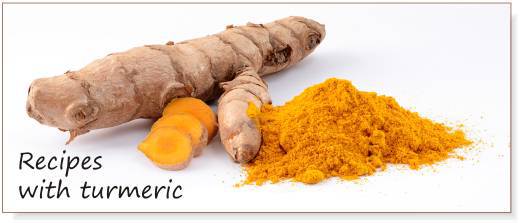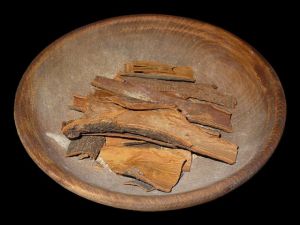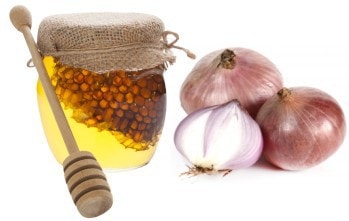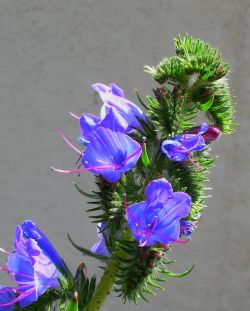I’m sure you’ve heard a lot about it, but still wonder what is turmeric good for. For real. Here are its main health benefits, the ones that are well researched and studied. (It is said it can cure over 650 conditions.)
The golden honey, aka golden milk, refers to honey mixed with turmeric.
Honey alone is known to have high therapeutic activities. In combination with turmeric it will act as a potentiator of its therapeutic properties.
What is turmeric?
Turmeric is a strong anti-inflammatory, antioxidant, and antiatherogenic product. Yes, another wonder food! It’s a spice coming from southwest India. It’s a key ingredient in curry, which gives it the specific yellow color. Also used in our mustard for the same reason.
The rhizomes are the used part of the plant. They can be eaten fresh or boiled for 30 to 45 minutes, dried in hot oven and then grounded. A deep-orange-yellow powder will result, which is a common spice in India cuisine, also used for dyeing.
Turmeric’s main active ingredient is curcumin, which has a distinctly earthy, slightly bitter, slightly hot peppery flavor and a mustardy smell. Each 100 grams of turmeric contains around 3 to 5 grams of curcumin. The other two curcuminoids found in turmeric are desmethoxycurcumin and bis-desmethoxycurcumin (wikipedia links). They are all natural phenols that are responsible for the yellow color of turmeric. And for its well-known health benefits.
Read more about turmeric in Indian Ayurvedic Medicine:
Turmeric: The Ayurvedic Spice of Life. The book is available on paperback, has 108 pages and it was published in 2010. It offers a large view on what is and was turmeric. Some people said it doesn’t offer any dosage for specific conditions. Of course it doesn’t. It’s impossible to give a dosage in a book for a complex person with a certain personality, certain other conditions, certain environments. In Orient, people are seen as wholes not as singular organs that need to be treated. After a consultation, a specialist will surely tell you the right dosage for you.
But the book offers a complete description, with history and everything, on what turmeric is.
Turmeric is a VERY STRONG anti-inflammatory agent.
Really strong. Equals ibuprofen – says the study: “Efficacy and safety of Curcuma domestica extracts compared with ibuprofen in patients with knee osteoarthritis: a multicenter study.”, by Kuptniratsaikul V et al., and published by The Journal of Alternative and Complementary Medicine. The results of the study showed that:
“Curcuma domestica extracts are as effective as ibuprofen for the treatment of knee osteoarthritis. The side effect profile was similar but with fewer gastrointestinal adverse events reports in the Curcuma domestica extracts group.”
TURMERIC = IBUPROFEN
Considering that in 2013, in a Lancet review, ibuprofen was identified to be as toxic to the heart as the banned anti-inflammatory drug Vioxx, likely contributing to tens of thousands of deaths from cardiovascular disease each year, I think we should consider the yellow turmeric for our pains.
It prevents Alzheimer’s
A friend from India told me that Alzheimer’s is a disease created by a our lifestyle. I felt a little offended. Then I found out the truth: turmeric. Indians eat turmeric at almost every meal. It’s one of their traditional spices, used in medicine as well as in their kitchen, in their daily curries. And yes, India has the world’s lowest rate of Alzheimer’s disease. But it is due to their turmieric diet, not stressless lifestyle.
On a TV show, Sanjay Gupta said the low incidences of dementia and Alzheimer’s in his home country owed much to the traditional teas and food…he mentioned tumeric, ginger and cinnamon….and in the foods, pepper, too.
“Studies in animal models of Alzheimer’s disease (AD) indicate a direct effect of curcumin in decreasing the amyloid pathology of AD. As the widespread use of curcumin as a food additive and relatively small short-term studies in humans suggest safety, curcumin is a promising agent in the treatment and/or prevention of AD.”
In a curcumin research Gregory Cole, associate professor in residence of neurology and medicine, found curcumin – the yellow pigment in curry spice, administered to genetically altered mice can block and break up amyloid plaques that lead to Alzheimer’s.
In a study made at the University of California, Los Angeles, scientists fed curcumin, the active compound in turmeric tea, to rats prone to accumulate beta-amyloid plaque in their brains – the abnormality associated with Alzheimer’s disease in humans. Curcumin blocked the plaque’s accumulation. It also appeared to reduce inflammation related to Alzheimer’s disease in neural tissue. The rats fed curcumin also performed better on memory tests than rats on normal diets.
For Alzheimer’s disease, people say the treatment should start with 1/2 to 1 tsp daily in 4 to 6 ozs of water.
It prevents heart attacks among bypass patients
A 2012 study “Effects of curcuminoids on frequency of acute myocardial infarction after coronary artery bypass grafting.”, by Wongcharoen W et al., followed 121 patients who had bypass surgery between 2009 and 2011. Half of the patients took curcumin capsules three days before the surgery and then a subsequent 5 days after the surgery, the other half took placebo pills. After their operations, 30% of the placebo patients had a heart attack compared to only 13% in the curcumin group. It’s thought that the strong anti-inflammatory and antioxidant properties of the curcumin may help reduce by-pass patients’ chances of a heart attack by as much as 65%.
Their conclusion: The antioxidant and anti-inflammatory effects of curcuminoids may account for their cardioprotective effects shown in this study.
It prevents and treats cancer
It’s been found that in animals, curcumin “interferes with several important molecular pathways involved in cancer development, growth and spread,” according to the American Cancer Society.
Here are some studies published on PubMed, where you can find them:
– The curry spice curcumin selectively inhibits cancer cells growth in vitro and in preclinical model of glioblastoma.
– Curcumin inhibition of integrin (alpha6beta4)-dependent breast cancer cell motility and invasion. (I love their statements like “However, the mechanism by which curcumin inhibits cancer cell functions such as cell growth, survival, and cell motility is largely unknown.”)
– Curcumin inhibits the side population (SP) phenotype of the rat C6 glioma cell line: towards targeting of cancer stem cells with phytochemicals.
– Anti-Lung Cancer Activity of the Curcumin Analog JZ534 In Vitro.
The list of studies published on PubMed contains over 2,000 articles. You can see them here.
It lowers cholesterol
The study “Curcumin enhances cell-surface LDLR level and promotes LDL uptake through downregulation of PCSK9 gene expression in HepG2 cells”, by Tai MH et al., published on PubMed, showed that “curcumin suppression of PCSK9 expression is associated with increases in cell-surface LDLR and LDLR activity in hepatic cells and it acts in a molecular mechanism that is distinct from the statins. Curcumin exhibits hypolipidemic activity and may serve as a useful supplement to statin treatment for hypercholesterolemia.
Other conditions:
Relieves symptoms in functional dyspepsia (link to PubMed study);
Increases healthy fat loss and decreases insulin issues;
Reduces symptoms of ostearthritis (link to PubMed study);
Treats flu and colds. Use the golden honey for them.
Helps digestion. Here is where the golden honey fits in. Turmeric mixed with honey helps digestion and increases the activity of good bacteria in our guts.
Golden honey
Make your own golden honey, by mixing raw honey with some turmeric. It is always good to have some therapeutic honeys in your house: black honey (honey and black cumin), golden honey (honey and turmeric) or cinnamon honey.
If you don’t have raw honey, don’t use one from the supermarket, it’s a waste of money and time. It’s better to buy one from an online shop, like this one available on Amazon, that has raw buckwheat honey (one of the most powerful antioxidant we have, some say a more powerful antioxidant than the famous manuka honey), turmeric and cinnamon. (link to the article “Cinnamon warning”)
Together they make one powerful antioxidant. Perfect to be taken in the mornings of autumn or winter. Buckwheat Honey with Cinnamon and Turmeric (Pure Natural Raw Honey).
Golden honey should be kept in the mouse until complete dissolution. For colds and flue, from the very beginning take a teaspoon every two hours. It also helps in respiratory conditions, hemophilia and hypertension.
The Tibetan medicine says we should not take turmeric at random. It should be taken:
· Before eating – excellent for throat and lungs.
· While eating – excellent for the digestive system.
· After eating – excellent for the colon and kidneys.
If you want to take a more serious quantity of turmeric, to treat a certain condition, or at least to give it a try and see how you feel after it, then you can buy tablets. They are easier to take and offer the right quantity.
Other powerful natural product for cancer and HIV: Black Seeds (Nigella Sativa)
Black seed & honey – a natural cure. Cancer is gone!
How to cure HIV? The black seeds, Nigella Sativa, have the answer!
Nigella Sativa, the black seeds, can cure every disease. Come on…
Do black seeds really cure HIV? Some case reports may help!
Curcumin and piperin
Studies have showed that being both strong antioxidants, when are joined together, curcumin from turmeric and piperine from black pepper, enhance each other’s properties. Piperine has been shown to significantly increase the bioavailability of curcumin by 2,000%.
But his ones come with a free EBook to keep on reading about these well-kept secrets of Ancient Chinese and Indian pain relievers. Considering they both have the same price, it’s probably a good option to buy the one with the free book.
How to take turmeric
• Some therapists recommend taking 375 – 400 mg of turmeric per day, or 200 mg of curcumin, the active ingredient in turmeric, each day. If we don’t have a therapist (probably an Ayurvedic one will be more appropriate) to tell us exactly, the manufacturer writes the recommended dosage on the product anyway. Yet, it’s always better to consult with your physician, as this is a powerful stuff and can alter the effect of your other medication.
• Other therapists recommend higher doses. University of Maryland’s Complementary and Alternative Medicine Guide, suggests the following turmeric dosages for adults:
Cut root: 1.5-3 grams per day;
Dried, powdered root: 1-3 grams per day;
Fluid extract (1:1): 30-90 drops per day;
Tincture (1:2): 15-30 drops, 4 times per day.
Their recommended curcumin dosage for a standardized powder supplement is 400-600 mg, 3 times per day. (Look for products standardized for 95% curcuminoids that also contain piperine or black pepper extract.)
For prevention it is good to insert it in our cuisine, and use it as a regular spice, like we use parsley. If you feel the need to do more than that, than you can use it to your teas, cocktails, soups.
And here are some useful recipes with turmeric.
Any side effects?
I don’t believe that there could be a product, honey included, from which we can take massive quantities for a very long time and never have any side effects. Our body is just not built this way.
Some therapists tell us to be careful if we have diabetes or low blood pressure, as turmeric can lower blood pressure and sugar levels, and we should consult with the doctor before using this mix. Also, people with bile disease should also stay away from turmeric, because it can cause muscle contractions in the gall bladder.
You shouldn’t use turmeric if you have gallstones or bile duct dysfunction, and pregnant women shouldn’t use it without their doctors’ approval. In rare cases, extended use can cause stomach upset or heartburn.
Piperine can slow the elimination of some prescription drugs including phenytoin [Dilantin], propranolol [Inderal], and theophylline.
Interference with other drugs:
• Some evidence also suggests that curcumin can interfere with a chemotherapy agent used to treat breast cancer, so if you’re being treated for this disease, be sure to discuss the advisability of taking curcumin with your physician.
• When taken with Blood-thinning medications, turmeric may strengthen the effects of these drugs, raising the risk of bleeding. Blood thinners include warfarin (Coumadin), clopidogrel (Plavix), and aspirin, among others.
• When taken with Drugs that reduce stomach acid like: Cimetidine (Tagamet), Famotidine (Pepcid), Ranitidine, (Zantac), Esomeprazole (Nexium), Omeprazole (Prilosec), Lansoprazole (Prevacid), turmeric may interfere with their action, increasing the production of stomach acid.
• When taken with Diabetes Medications, turmeric may strengthen the effects of these drugs, increasing the risk of hypoglycemia (low blood sugar).
Remember not to get obsessed with illness and alternative medicine. Always remember to enjoy life, no matter if you are healthy or ill. Time will go anyway, and there is no point in always trying to heal a body that we will eventually lose. Instead, let’s make this body feel happiness inside.
References:
alzheimers.net/2013-07-29/turmeric-and-alzheimers/
“Curcuma longa roots” by Simon A. Eugster – Own work. Licensed under CC BY-SA 3.0 via Wikimedia Commons
http://en.wikipedia.org/wiki/Turmeric
naturalsociety.com/turmeric-a-superfood-secret-for-healthy-fat-loss/
naturalsociety.com/turmeric-naturally-fights-heart-attacks-strengthens-heart/
bestherbalhealth.com/turmeric-golden-honey-the-strongest-natural-antibiotic
http://www.drweil.com/drw/u/QAA400981/Turmeric-for-Depression.html
http://umm.edu/health/medical/altmed/herb/turmeric



 available on AMAZON
available on AMAZON


